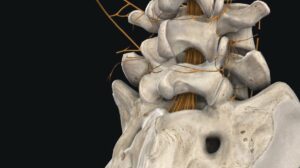NEW YORK (Reuters Health) – The Oncotype DX test, based on reverse transcription polymerase chain reaction (RT-PCR), for HER2 gene amplification in breast cancers has an “unacceptable” false-negative rate, according to a report in the Journal of Clinical Oncology online October 11.
That conclusion is based on the authors’ comparison of results using the Genomic Health (GHI) Oncotype DX test and those based on immunohistochemistry (IHC) and fluorescent in situ hybridization (FISH).
“On the basis of our data, we suggest that oncologists be careful not to take into account GHI HER2 assay in selecting patients for trastuzumab therapy and continue to rely on validated IHC and/or FISH assays,” advise Dr. Rohit Bhargava, at Magee-Womens Hospital of the University of Pittsburgh Medical Center, Pennsylvania, and colleagues.
They point out that the human epidermal growth factor receptor 2 gene (HER2 or ERBB2) is amplified in 15% to 20% of breast cancers, and this is a prognostic marker for aggressive disease. HER2 gene amplification is associated with mRNA overexpression, which is measured by the GHI Oncotype DX assay, but its accuracy has not been independently assessed.
The investigators therefore compared results obtained with the GHI quantitative RT-PCR assay to those based on IHC and FISH in 843 patients evaluated at three centers. “All IHC-positive and equivocal patient cases were further evaluated and classified by FISH,” they explain.
There were 816 negative results reported by the GHI qRT-PCR, but 14 of these were found to be positive and 23 equivocal on IHC/FISH testing, the authors report. Also, of 17 GHI results classified as equivocal, 12 were found to be positive by IHC/FISH.
In fact, of 36 cases identified as positive by IHC/FISH, only 10 were identified as such by the GHI test; 12 were reported as equivocal and 14 as negative, the data indicate.
“There was an unacceptable false-negative rate for HER2 status with GHI HER2 assay in this independent Study,” Dr. Bhargava and colleagues conclude. “This could create confusion in the decision-making process for targeted treatment and potentially lead to mismanagement of patients with breast cancer if only GHI HER2 information is used.”
So where does this leave clinicians? ask two editorialists. “Simply stated, there is insufficient evidence to support qRT-PCR as a substitute for in situ methods (IHC/FISH),” say Drs. John M. S. Bartlett and Jane Starczynski with the Ontario Institute for Cancer Research in Toronto.
Reference:
J Clin Oncol 2011;29.




